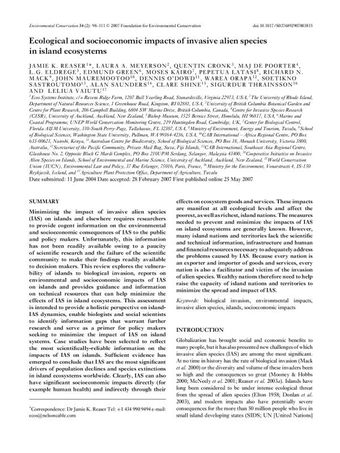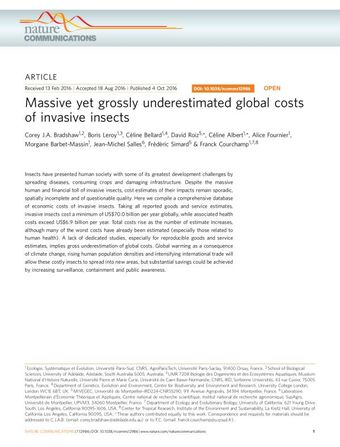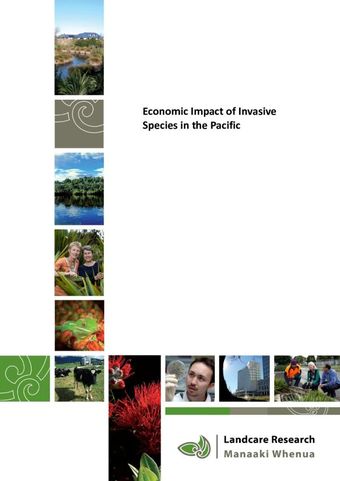Towards Greener Taxes and Subsidies in Pacific Island Countries and Territories (PICTs)
- Description:
- The Restoration of Ecosystem Services and Adaptation to Climate Change (RESCCUE) project is a regional project implemented by the Pacific Community. The overall goal of RESCCUE is to contribute to increasing the resilience of Pacific Island Countries and Territories (PICTs) in the context of global changes. To this end RESCCUE aims at supporting adaptation to climate change (ACC) through integrated coastal management (ICM), resorting especially to economic analysis and economic and financial mechanisms. The RESCCUE project operates both at the regional level and in one to two pilot sites in four countries and territories: New Caledonia, Vanuatu, Fiji and French Polynesia. RESCCUE is funded primarily by the French Development Agency (AFD) and the French Global Environment Facility (FFEM) for a duration of five years (01/01/2014 to 31/12/2018). The project budget is 8.5 million Euros from AFD/FFEM. It is structured around five components: Component 1: Integrated coastal management supporting ICM implementation through ICM plans, ICM committees, and management activities concerning both terrestrial and marine ecosystems, capacity building and income generating activities. Component 2: Economic analysis using economic analysis to support coastal management and policy decisions. Component 3: Economic and financial mechanisms setting up economic and financial mechanisms to generate additional and sustainable funding for ICM: review of options (payment for ecosystem services, taxes, user fees, trust funds, quota markets, offsets, labels ); feasibility studies; implementation; monitoring. Component 4: Capitalization, communication, dissemination of project outcomes in the Pacific going beyond pilot sites activities in order to have impacts at the regional level, by fostering experience sharing between sites, cross-sectoral expertise, and communication and dissemination of the project outcomes. Component 5: Project management implementing and coordinating the project, by providing technical assistance, organizing local and regional steering committees, conducting audits and evaluations (mid-term and ex-post), etc. The report is to present interesting illustrative examples. The examples were selected based on the scale of their (potential) environmental, economic and social impacts, and their relevance to the PICT region, to ensure they are representative of the broader region and any lessons learned from an example in one location could be transferable more widely. This report should be seen as a contribution to the future analysis of taxes and subsidies (and their reform) that can help to meet a range of challenges facing the PICT region. It aims to contribute to guiding the region towards greener taxes and subsidies, by building the knowledge and capacity of policy-makers and stakeholders and offering some ideas for the future further greening of instruments to support the achievement of environmental objectives.
- Collections:
- Secretariat of the Pacific Regional Environment Programme (SPREP)
- Content partner:
- Secretariat of the Pacific Regional Environment Programme (SPREP)
- Availability:
- Not specified
-
Copyright status: All rights reservedFind out more about what you are able to do with this itemThis item is all rights reserved, with means you'll have to get permission from Secretariat of the Pacific Regional Environment Programme (SPREP) before using it. For more information, please see our use and reuse page.What can I do with this item?Non-infringing useNZ copyright law does not prevent every use of a copyright work, and this item may be hosted by an international institute or organisation. You should consider what you can and cannot do with a copyright work.No sharingYou may not copy and/or share this item with others without further permission. This includes posting it on your blog, using it in a presentation, or any other public use.No modifyingYou are not allowed to adapt or remix this item into any other works.No commercial useYou may not use this item commercially.
Related items
Welcome and warm Pasifik greetings
The information on this site has been gathered from our content partners.
The names, terms, and labels that we present on the site may contain images or voices of deceased persons and may also reflect the bias, norms, and perspective of the period of time in which they were created. We accept that these may not be appropriate today.
If you have any concerns or questions about an item, please contact us.


